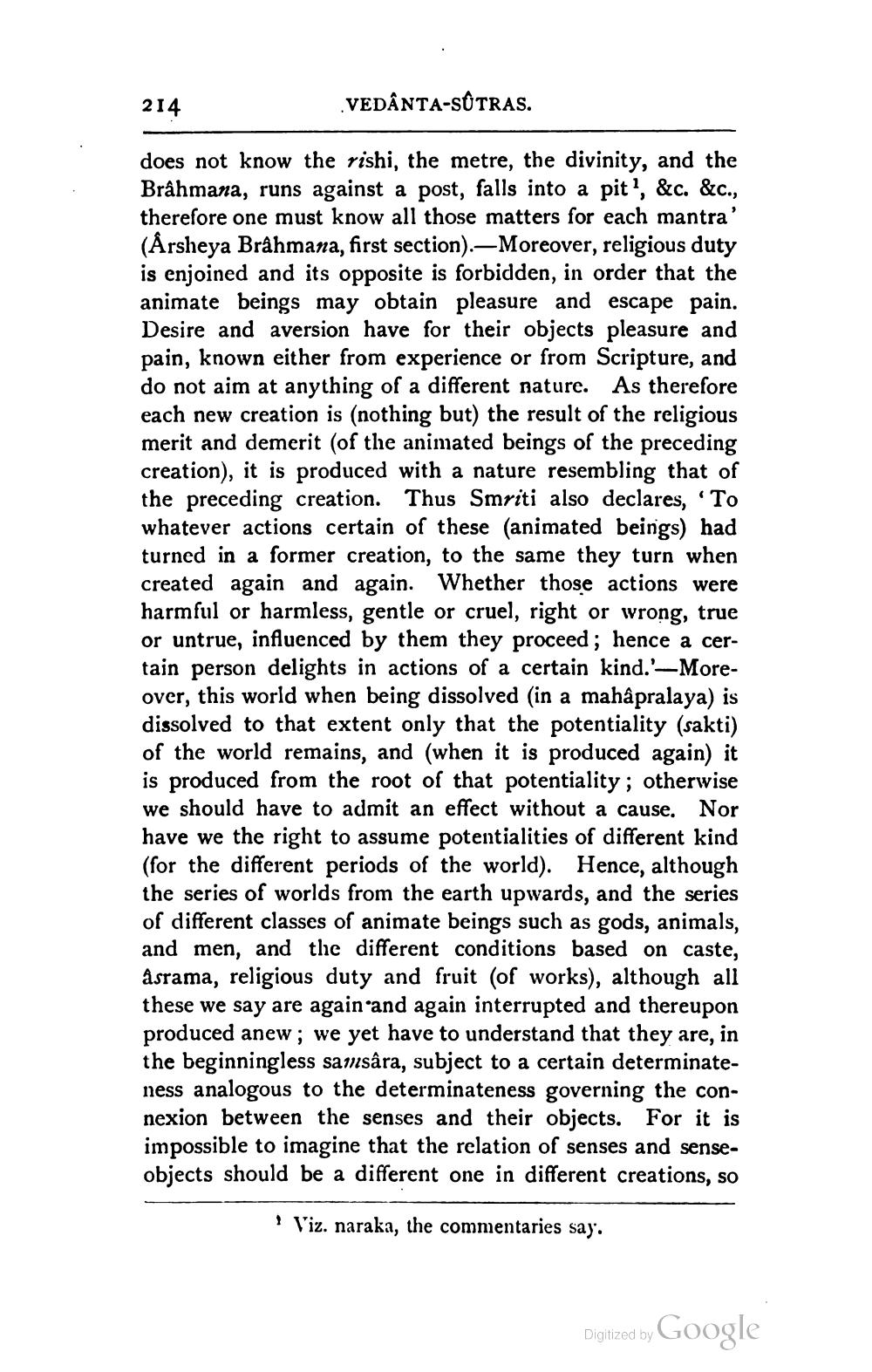________________
214
VEDÂNTA-SOTRAS.
does not know the rishi, the metre, the divinity, and the Brahmana, runs against a post, falls into a pit, &c. &c., therefore one must know all those matters for each mantra' (Arsheya Brahmana, first section).—Moreover, religious duty is enjoined and its opposite is forbidden, in order that the animate beings may obtain pleasure and escape pain. Desire and aversion have for their objects pleasure and pain, known either from experience or from Scripture, and do not aim at anything of a different nature. As therefore each new creation is (nothing but) the result of the religious merit and demerit (of the animated beings of the preceding creation), it is produced with a nature resembling that of the preceding creation. Thus Smriti also declares, 'To whatever actions certain of these (animated beings) had turned in a former creation, to the same they turn when created again and again. Whether those actions were harmful or harmless, gentle or cruel, right or wrong, true or untrue, influenced by them they proceed; hence a certain person delights in actions of a certain kind.'-Moreover, this world when being dissolved (in a mahậpralaya) is dissolved to that extent only that the potentiality (sakti) of the world remains, and (when it is produced again) it is produced from the root of that potentiality; otherwise we should have to admit an effect without a cause. Nor have we the right to assume potentialities of different kind (for the different periods of the world). Hence, although the series of worlds from the earth upwards, and the series of different classes of animate beings such as gods, animals, and men, and the different conditions based on caste, asrama, religious duty and fruit (of works), although all these we say are again and again interrupted and thereupon produced anew; we yet have to understand that they are, in the beginningless samsara, subject to a certain determinateness analogous to the determinateness governing the connexion between the senses and their objects. For it is impossible to imagine that the relation of senses and senseobjects should be a different one in different creations, so
Viz. naraka, the commentaries say.
Digitized by
Digized by Google




